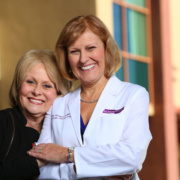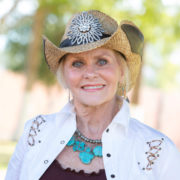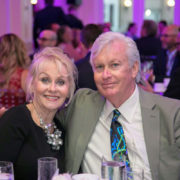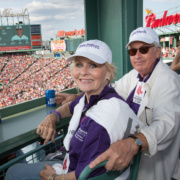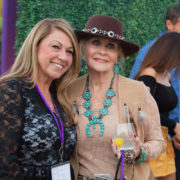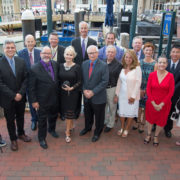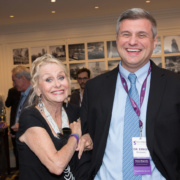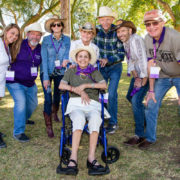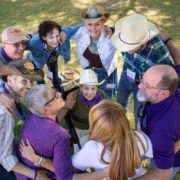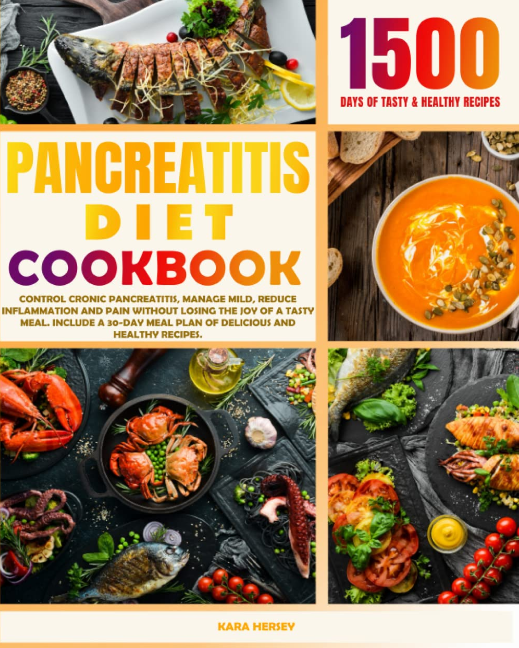A Story of Hope and Faith
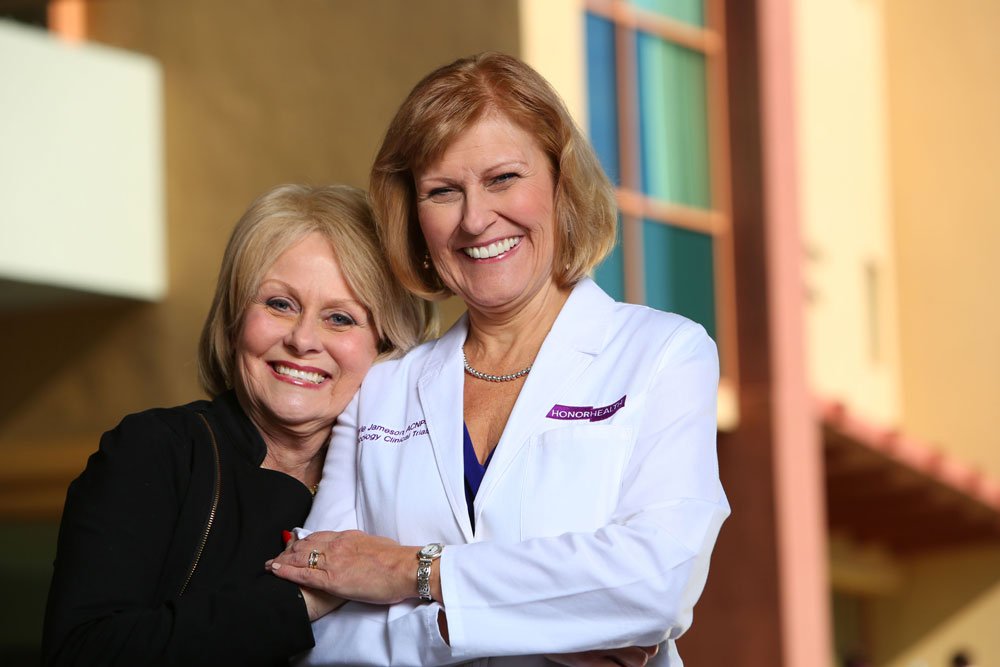
- L-R Saundra DeMey-Forrest and Gayle Jameson
- Photo/Reba Saldanha August 26, 2018
SAUNDRA DeMEY-FORREST
In The Face of No Hope, A Second Chance
Written By Debra Gelbart
August 10, 2017
Diagnosed: January, 2015
Status: Currently No Sign of Active Cancer
EDITOR UPDATE: October, 2018
Saundra said she had a few setbacks and is now on an oral chemotherapy, Lynparza, hoping to stop a creeping tumor marker in its tracks. So far, it appears to be working.
In The Face of No Hope, A Second Chance
Saundra DeMey-Forrest was facing the scariest crisis anyone can confront. She had been told by a surgeon that her Stage 4 pancreatic cancer couldn’t be cured, that she should “go home and get your affairs in order.” Then, an oncologist told her that her cancer was so advanced, she would have no quality of life if she were treated with chemotherapy. But Saundra refused to accept what she was hearing. She went home and searched online for “Stage 4 pancreatic cancer research trials.”
That simple act of not giving up, of thinking beyond conventional advice, has helped her stay alive far longer than the three months or so the doctors had predicted in January 2015 when she was diagnosed. Today, she’s feeling good, traveling, enjoying time with her husband Jeff, her grown children and five grandchildren, and showing no sign the cancer is progressing. Now her motto for her life, she says, is “No cure, no hope, no problem.”
The Study
In February 2015, she was enrolled in a clinical trial sponsored by the HonorHealth Research Institute, (HRI) and the Translational Genomics Research Institute (TGen) for 25 patients with Stage 4 pancreatic cancer who had had no previous treatment for advanced disease. The pilot study included a combination of three chemotherapy drugs that had not been combined before to treat pancreatic cancer. After just nine weeks, Saundra’s scan showed dramatic improvement. Over time, her tumors continued to shrink and her tumor marker—one way doctors and researchers assess the extent of a particular cancer—normalized.
Now, she has what’s called “stable” disease, with the tumor marker still in the normal range and a few tiny spots on her pancreas and liver that show no evidence of being active. “The hope is to keep me alive long enough to find a cure,” she said. She said her medical oncologist, Erkut Borazanci, M.D., clinical investigator at HRI and medical director of the institute’s Early Cancer Detection Program, told her the longer she can hold on, the more treatment options she might have.
The results of that study are truly encouraging, said Gayle Jameson, R.N., MSN, ACNP-BC, principal investigator of this study, a nurse practitioner and associate investigator with HRI. She explained that 71 percent of patients “experienced a favorable disease response.” Of the 24 patients who the research team was able to evaluate in the study, two had what’s called a “complete response,” meaning they had no evidence of disease when they had their best response to treatment.
Another 15 patients, like Saundra, had what’s called a “partial response”—a reduction by at least 30 percent in the size of their tumors and a falling tumor marker. Four patients experienced no change in their disease and three experienced an advancement (called “progression”) of the cancer.
Plans are underway to possibly expand this trial to include an additional 75 patients at multiple sites across the country.
Building on this three-drug foundation, a new study is underway at HRI, adding a synthetic Vitamin D and an immunotherapy drug called nivolumab (whose brand name is Opdivo) to the triplet. “We’re hopeful this ‘grand slam’ of treatment may show even more dramatic results,” Jameson said.
Read More Information on Saundra’s Clinical Trial
A Mission To Help Others
In the meantime, Saundra DeMey-Forrest wants to let the world know that “stage 4 pancreatic cancer is not a death sentence, especially when you can be helped by HonorHealth and TGen.” She also wants to tell the Seena Magowitz Foundation how honored she was that she had been invited to speak during the weekend of the 15th
Annual Seena Magowitz Golf Classic, a fundraising event that was held in Boston August 26, 27, and 28, 2017. “I pray every night that I can help someone else,” she said. “I think God has a plan for me. I am not a public speaker but I’m so honored to be asked and at the very least, I can pay it forward.”

